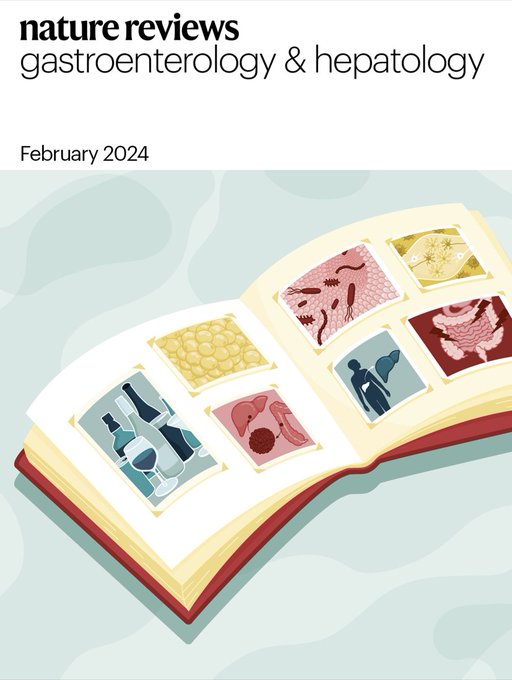Interaction of inflammation and portal hypertension in cirrhosis progression.
IF 51
1区 医学
Q1 GASTROENTEROLOGY & HEPATOLOGY
引用次数: 0
Abstract
Decompensated cirrhosis describes an advanced clinical stage with clinical complications, such as ascites, variceal bleeding or hepatic encephalopathy, associated with considerable mortality. Portal hypertension is the main risk factor for developing decompensation in patients with compensated cirrhosis, whereas systemic inflammation is the key driving force for organ failure, that is, for acute-on-chronic liver failure in later stages of cirrhosis. As portal hypertension and systemic inflammation coexist in patients with cirrhosis, an improved understanding of their interaction and dynamic role in distinct stages of cirrhosis is an important step forward towards the development of urgently needed therapeutic interventions. Based on emerging evidence from clinical and translational studies, a novel concept of different predominant pathomechanisms of decompensated cirrhosis is presented, which includes portal hypertension-predominant, systemic inflammmation-predominant and mixed portal hypertension-systemic inflammation phenotypes. A comprehensive set of biomarkers and surrogates of portal hypertension and systemic inflammation might assist clinicians in identifying a predominance of one over the other cirrhosis phenotype. As survival rates of patients with decompensated cirrhosis have remained detrimental without liver transplantation over the past decades, future studies should build on this knowledge to develop effective portal hypertension and systemic inflammation-directed therapies for this underserved population.肝硬化进展中炎症和门静脉高压的相互作用。
失代偿性肝硬化描述了一个晚期临床阶段,伴有临床并发症,如腹水、静脉曲张出血或肝性脑病,与相当高的死亡率相关。门脉高压是代偿性肝硬化患者发生代偿失代偿的主要危险因素,而全身性炎症是器官衰竭的关键驱动力,即肝硬化晚期急性伴慢性肝功能衰竭。由于肝硬化患者门静脉高压和全身性炎症共存,因此更好地了解它们在肝硬化不同阶段的相互作用和动态作用,是朝着开发急需的治疗干预措施迈出的重要一步。基于临床和转化研究的新证据,提出了失代偿性肝硬化不同主要病理机制的新概念,包括门脉高压为主、全身性炎症为主和门脉高压-全身性炎症混合表型。一套全面的门脉高压和全身性炎症的生物标志物和替代物可能有助于临床医生确定一种比另一种肝硬化表型的优势。在过去的几十年里,失代偿性肝硬化患者的生存率在没有肝移植的情况下仍然是不利的,未来的研究应该建立在这一知识的基础上,为这一服务不足的人群开发有效的门静脉高压和系统性炎症导向的治疗方法。
本文章由计算机程序翻译,如有差异,请以英文原文为准。
求助全文
约1分钟内获得全文
求助全文
来源期刊
CiteScore
52.30
自引率
0.60%
发文量
147
审稿时长
6-12 weeks
期刊介绍:
Nature Reviews Gastroenterology & Hepatology aims to serve as the leading resource for Reviews and commentaries within the scientific and medical communities it caters to. The journal strives to maintain authority, accessibility, and clarity in its published articles, which are complemented by easily understandable figures, tables, and other display items. Dedicated to providing exceptional service to authors, referees, and readers, the editorial team works diligently to maximize the usefulness and impact of each publication.
The journal encompasses a wide range of content types, including Research Highlights, News & Views, Comments, Reviews, Perspectives, and Consensus Statements, all pertinent to gastroenterologists and hepatologists. With its broad scope, Nature Reviews Gastroenterology & Hepatology ensures that its articles reach a diverse audience, aiming for the widest possible dissemination of valuable information.
Nature Reviews Gastroenterology & Hepatology is part of the Nature Reviews portfolio of journals.

 求助内容:
求助内容: 应助结果提醒方式:
应助结果提醒方式:


